This year, the main science and technology event in the country took place in the northern region of Portugal – more precisely, at the Alfândega do Porto (July 3 to 5). Following the motto “+Science for Health and global well-being”, INESC TEC participated in five sessions, as well as in the science and technology exhibition, the posters presentation, and the awards session.
Smart healthcare: the connection between AI and Healthcare Systems, according to INESCs advances
The INESC ecosystem – INESC TEC, INESC-Coimbra, INESC-ID, INESC-MN and INESC INOV – came together to highlight the main advances in smart healthcare, through the emerging contributions in terms of Artificial Intelligence and Healthcare Systems. For a more concrete and productive discussion, several INESC researchers joined different partners in the healthcare sector: the Universidade Local de Saúde Santa Maria, the Instituto de Saúde Ambiental (ISAMB) and the Unidade Local de Saúde de Gaia e Espinho.
The session, held on the afternoon of July 3, was moderated by INESC TEC researcher Alípio Jorge. Speakers included: Joana Dias, from INESC Coimbra, Ana Madureira, from INESC INOV, Diogo Caetano, from INESC MN, Rui Henriques, from INESC-ID and Hélder Oliveira, from INESC TEC.
The participants provided several examples in terms of AI and Healthcare Systems connection, like the optimisation of radiotherapy treatment plans, and the importance of using different approaches – some of which including AI. Joana Dias was the one responsible for the kick off. INESC INOV presented the European e-Hospital 4 Future project, whose objective is to create courses and training modules for healthcare professionals – whether clinical or not –, focusing on digital transformation and the use of AI in medical devices. Researcher Ana Madureira mentioned that the first of the 19 planned training courses will start in September (e-learning and b-learning), before mentioning a future call for national healthcare institutions to access said training actions. INESC MN presented the Bactometer, a biological detector that prevents antimicrobial resistance in hospital environments, when used as a screening method. According to Diogo Caetano, this detector uses magnetic methods and machine learning techniques instead of the optical methods used by current technologies. Rui Henriques, from INESC ID, presented some AI and healthcare research projects promoted by the Institute: the use of robots for social purposes and AI in problems related to speech, or the importance of AI in the diagnosis and therapy of patients – concerning, for instance, the prescription of medicines.
Hélder Oliveira, INESC TEC researcher, concluded the session and presented the first healthcare project coordinated by the institution – AI4Lungs. The project resorts to new AI tools using different types of data collected in clinical practice, like lung auscultation, CT, X-ray, clinical analysis, demographic and clinical data, etc. In Portugal, the healthcare partner involved is the Unidade Local de Saúde de Gaia e Espinho. This project also aims to support physicians during the diagnosis and treatment processes. The main innovative aspects of AI4Lungs are the digital auscultation and liquid biopsy, the latter developed by the Institute for Research and Innovation in Health – i3S. AI4Lungs researchers seek to introduce liquid biopsy (used mostly in more advanced cancer stages) as an initial tool, thus preventing dozens of other tests.
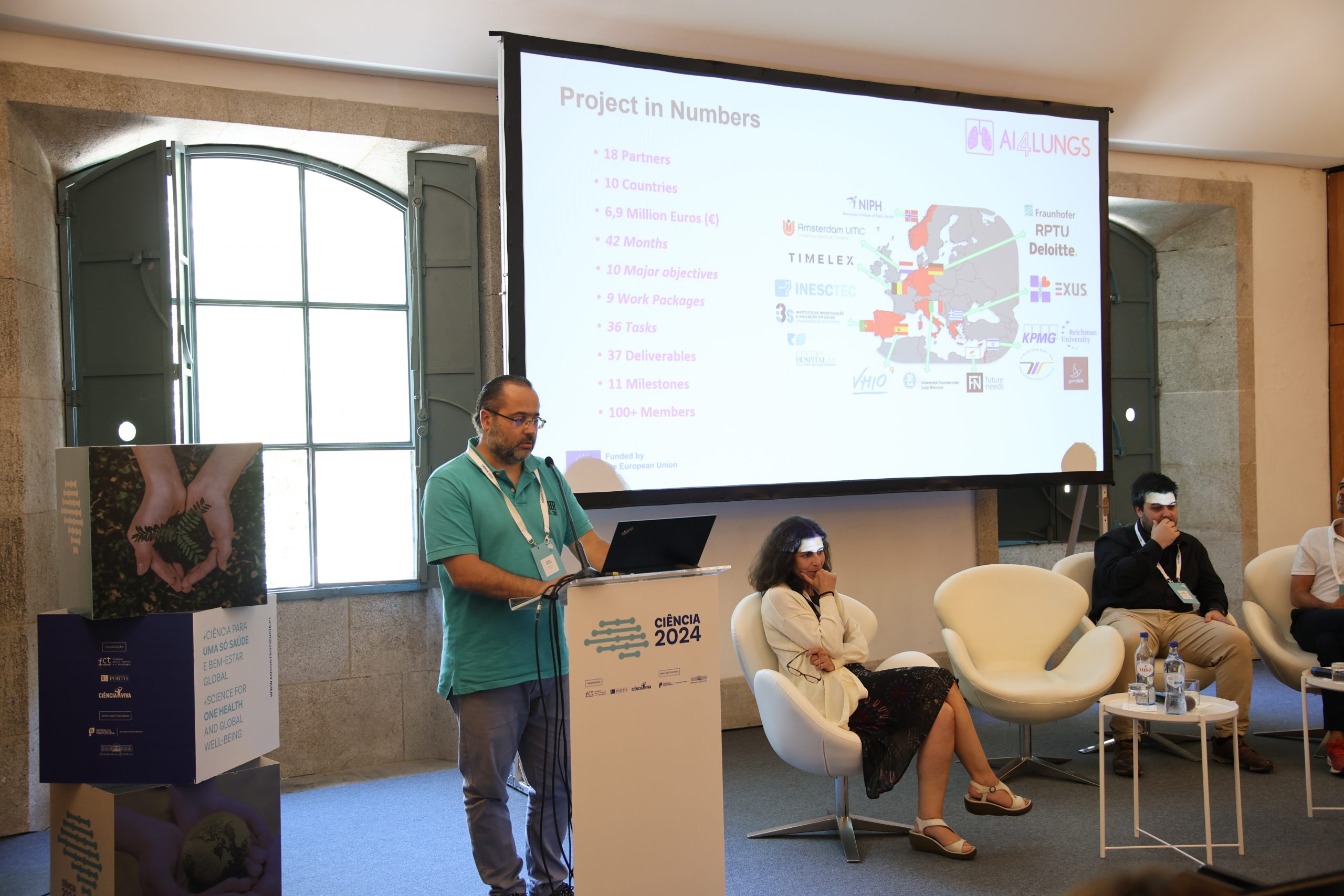
The discussion was quite extensive and comprehensive. One of the main topics addressed concerned accountability: who has the final call in terms of responsibility? Healthcare professionals or AI? This topic had already been promoted by INESC TEC, namely during the third episode of the first season of the podcast and videocast “INESC TEC Science and Society”; in this episode, dedicated to “AI and Cancer – a means for early detection?”, Hélder Oliveira discussed this theme, joined by other researchers. Another key topic that the audience considered unexplored was the use of AI in spaces, services and HR organisation in healthcare. Is this a starting point for new research projects within the INESC ecosystem? Only the future can tell.
Collaborative projects within Portugal’s partnership with CMU, MIT and UT Austin
While the INESC universe discussed AI and healthcare, José Manuel Mendonça, former Chairman of INESC TEC and National Director of the UT Austin Portugal program (a partnership that INESC TEC has hosted and coordinated since 2018), started a session co-organised by the three international partnerships of FCT – UT Austin Portugal, CMU Portugal and MIT Portugal. The discussion focused on how collaboration with these three North American universities – which is almost two decades old – has contributed to the development of talent, and to scientific and technological innovation and entrepreneurship. The session included teams from the three programmes, but also representatives of academia and industry, who participated in mobility activities promoted by the partnerships. The session focused on sharing stories and experiences, namely on the impact of said endeavours on career and business development.
José Manuel Mendonça started the session with a brief retrospective on International Partnerships. Going back to 2006, José Manuel Mendonça mentioned that the beginning of these collaboration actions with North American universities, in certain scientific areas, came from a political decision. In addition, he emphasised the position that MIT, CMU, and UT Austin hold in the Times Higher Education World University ranking – 5th, 28th, and 50th positions, respectively – to explain the opportunity that the Portuguese scientific community has found, through these Programs, to work with high-level experts in areas in which North American partners are leaders.
“Although with distinct tools and settings, these partnerships have a significant impact on three key areas – education, research, and innovation. Portugal had the opportunity to learn from three different science and technology ecosystems”, said José Manuel Mendonça. Among the various examples of the results of this collaboration and learning process, the National Director of the UT Austin Portugal Program identified the creation and growth of science and tech-based companies – some of which are now part of the unicorn group, such as Feedzai, valued at €2.4B – or the path towards the development of supercomputing in Portugal. “If it weren’t for the Bob supercomputer, we would not be able to develop the Deucalion supercomputer; similarly, if it weren’t for the Texas Advanced Computing Center (TACC), we wouldn’t have had access to Bob”, he mentioned.
Before moving on to the two panels of the session, José Manuel Mendonça left a message concerning the future, calling for decisions on the evolution of International Partnerships, not only in line with national strategies, but also considering European goals and commitments.
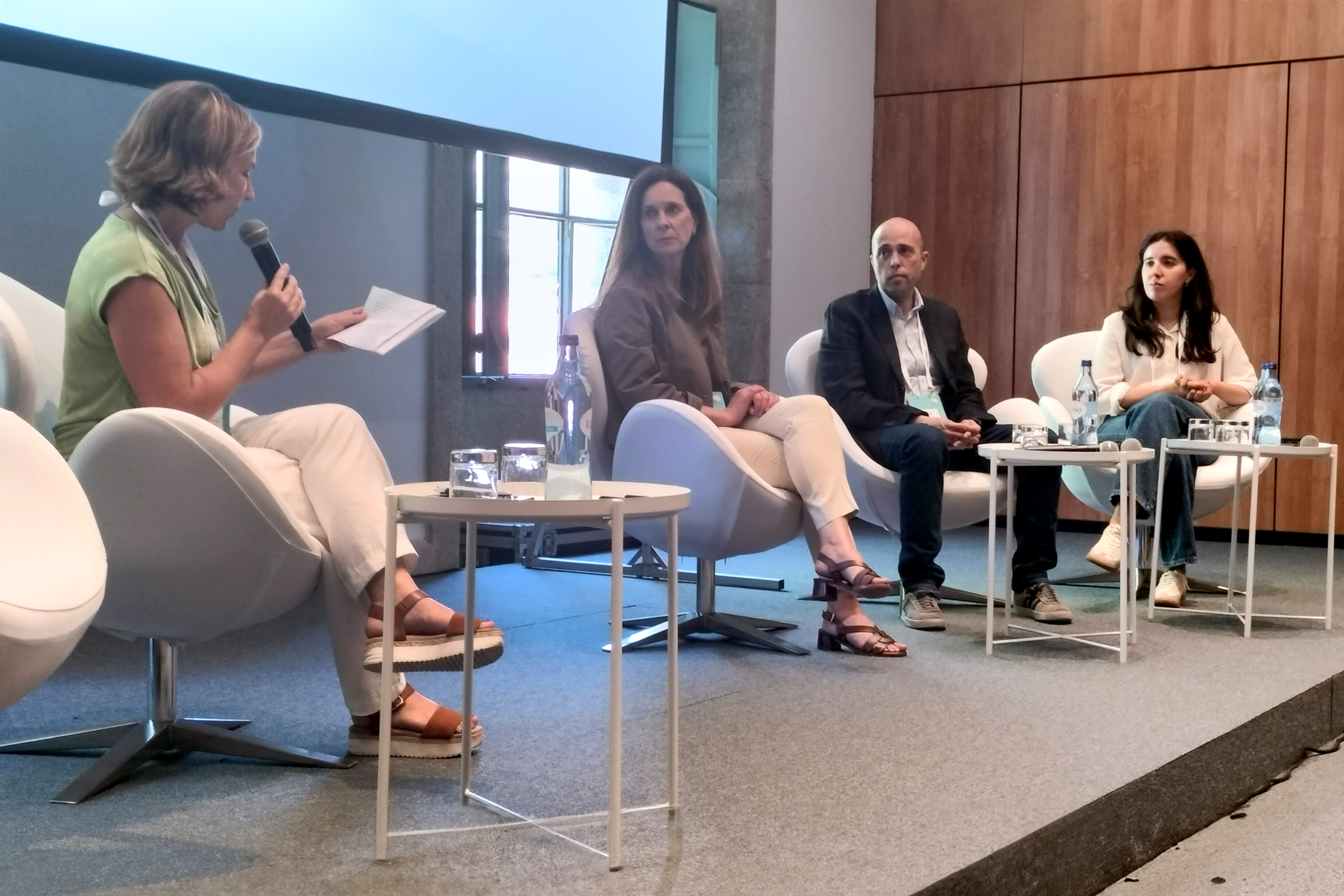
Lia Patrício, member of the Board at INESC TEC, and Mariana Miranda, researcher at INESC TEC, among others, participated in this session’s first panel, moderated by Inês Lynce, National Co-Director of the CMU Portugal Program; this discussion focused on the role of partnerships in talent development. Lia Patrício highlighted the role of Partnerships in the promotion of PhD programmes, e.g., the creation of a new dual Doctoral Programme in Engineering and Public Policies, at the Faculty of Engineering of Porto and the Instituto Superior Técnico – in collaboration with Carnegie Mellon University, within the scope of the CMU Portugal Program. In addition to training people, Lia Patrício also recalled the Program’s role in research and innovation, talking about the development of the Patient Innovation platform, and the creation of a “unique ecosystem”. “From my experience at CMU, I would like to highlight the culture, dynamism, dedication and power they have to make things happen,” she said. Mariana Miranda – who, in addition to being a researcher at INESC TEC, is also a Visiting Researcher at TACC at UT Austin – highlighted the impact of this mobility programme on her career. “TACC allowed me to have access to an infrastructure that, at the time, did not exist in Portugal”, she mentioned – reinforcing that this experience proved to be crucial, not only from the point of view of her scientific work, but also in terms of personal evolution.
CoARA: the challenges of research evaluation reform in the Portuguese context
On July 5, the last day of the event, João Claro, Chairman and CEO of INESC TEC, participated in a debate on CoARA (Coalition for Advancing Research Assessment) – an international alliance that aims to implement a systemic reform of the evaluation of research, researchers and research organisations, at a global level. In March 2024, INESC TEC, CoARA, FCT and Science Europe promoted the first discussion forum of this alliance taking place in Portugal.
João Claro, together with Eugénio Campos Ferreira (Vice-Dean of the University of Minho) and Bruno Béu (Advisor to the FCT Board of Directors), is co-chair of the Portuguese National Chapter of CoARA. It was up to the three of them to moderate a panel discussion on the next steps and action plans that the three institutions are following within the scope of the alliance. The panel of speakers included Cecília Rodrigues, Vice-Dean of the University of Lisbon, Claudio Sunkel, Director of i3S, Eduardo Rosa, Vice-Dean of the University of Trás-os-Montes and Alto Douro, and Tiago Santos Pereira, Director of the Centre for Social Studies.
According to João Claro “the debate showed a consensus on several crucial success factors to the advancement of research evaluation. These include the recognition of the central role of evaluation and impact within institutions, the concrete compliance of institutional principles to the commitments of the Agreement on Reforming Research Assessment, and the pragmatism of the challenge stemming from the compliance to the established action plan. The next concrete steps identified include, for example, the mapping and diagnosis of current practices and best practices, the implementation of pilot-projects, and the development of networks of internal ambassadors”.
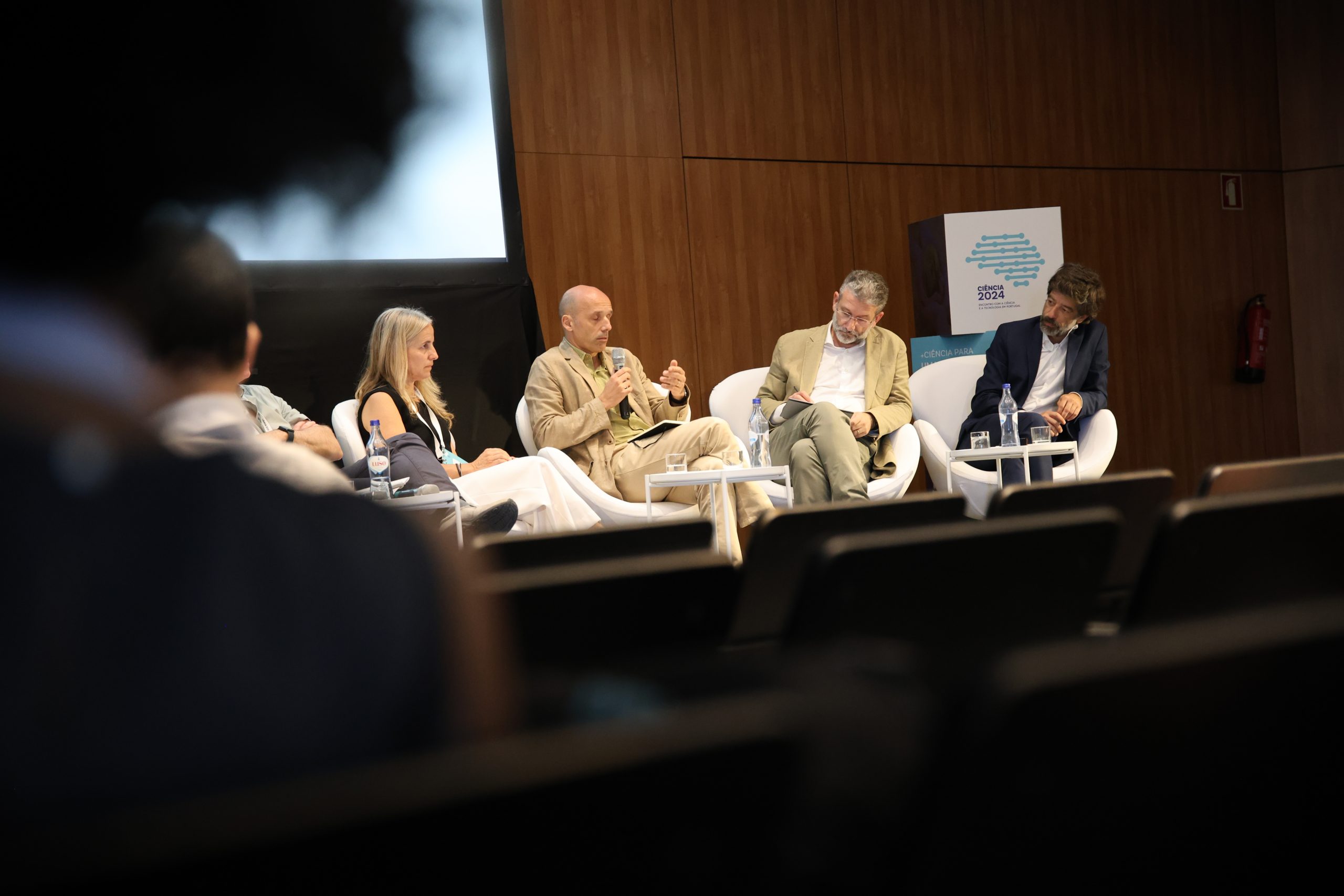
The session also focused on other topics: promotion of open science practices; overcoming of institutional inertia; management of interdependencies related to mobility and mutuality in the evaluation of research; effective management of expectations; ensuring a realistic allocation of resources and collaborative efforts to address the significant challenges of this area.
“In the future, it is crucial that we translate these ideas into concrete strategies, as part of solid action plans that can drive significant progress in the reform of research evaluation, ensuring its impact and sustainability”, concluded the Chairman of INESC TEC.
Currently, 660 members from 50 countries are already part of CoARA. Twelve national chapters have already been created and, in Portugal, there are 22 members – 12 higher education institutions, 9 research centres and one funding entity.
Interface Mission: from Science to the Market
While the reform of research evaluation in Portugal was being discussed, the Arrábida Room welcomed a debate on the increasingly relevant role that interface institutions – like INESC TEC – play in boosting knowledge-based innovation, towards creating value for the economy and society.
José Carlos Caldeira, Consultant to the Chairperson – and former member of the Board of Directors – was one of the speakers at this session, organised by the National Innovation Agency (ANI). This session explored the role of Technology Centres – like INESC TEC – and Collaborative Laboratories (CoLAB) in the innovation cycle; it also favoured the exchange of good practices and potential measures to address the challenges of the Portuguese economy and society (namely considering digital and green transition).
Green Hydrogen – industrial needs and new technological developments
INESC TEC’s participation ended on the afternoon of July 5. Abdelrahman Elhawash, INESC TEC researcher in the field of energy systems, participated as a speaker in a session dedicated to Green Hydrogen as a key element in the global strategy for the decarbonisation of important sectors of the economy. The session, organised by HyLab (Green Hydrogen Collaborative Laboratory), welcomed INESC TEC, speakers from EDP Renováveis, Galp, Bondalti, IST, FEUP, INEGI and LNEG – towards balancing the perspectives of industry and science and technology, towards improving the national innovation ecosystem dedicated to this area.
The science and technology exhibition
Carlos Ferreira, INESC TEC researcher and Business Developer dedicated to healthcare technologies, was the coordinator of the science and technology exhibition in which the Institute participated, during the three days of the event.
From wearable devices – associated with INESC TEC research in the field of biomedical engineering – to AI solutions for medical images – related to the CadPath project – and clinical texts – related to the results of the HfPT project and the Physio application –, INESC TEC showcased some of the technologies that have been developed within the scope of several health-related research projects. In addition, and since Encontro Ciência also focused on the “One Health” concept – including the environmental and animal perspectives –, several INESC TEC researchers working on industrial robotics presented a smart trap for the monitoring of pests in agriculture.
The exhibition area also featured an e-posters section, with INESC TEC submitting different works.
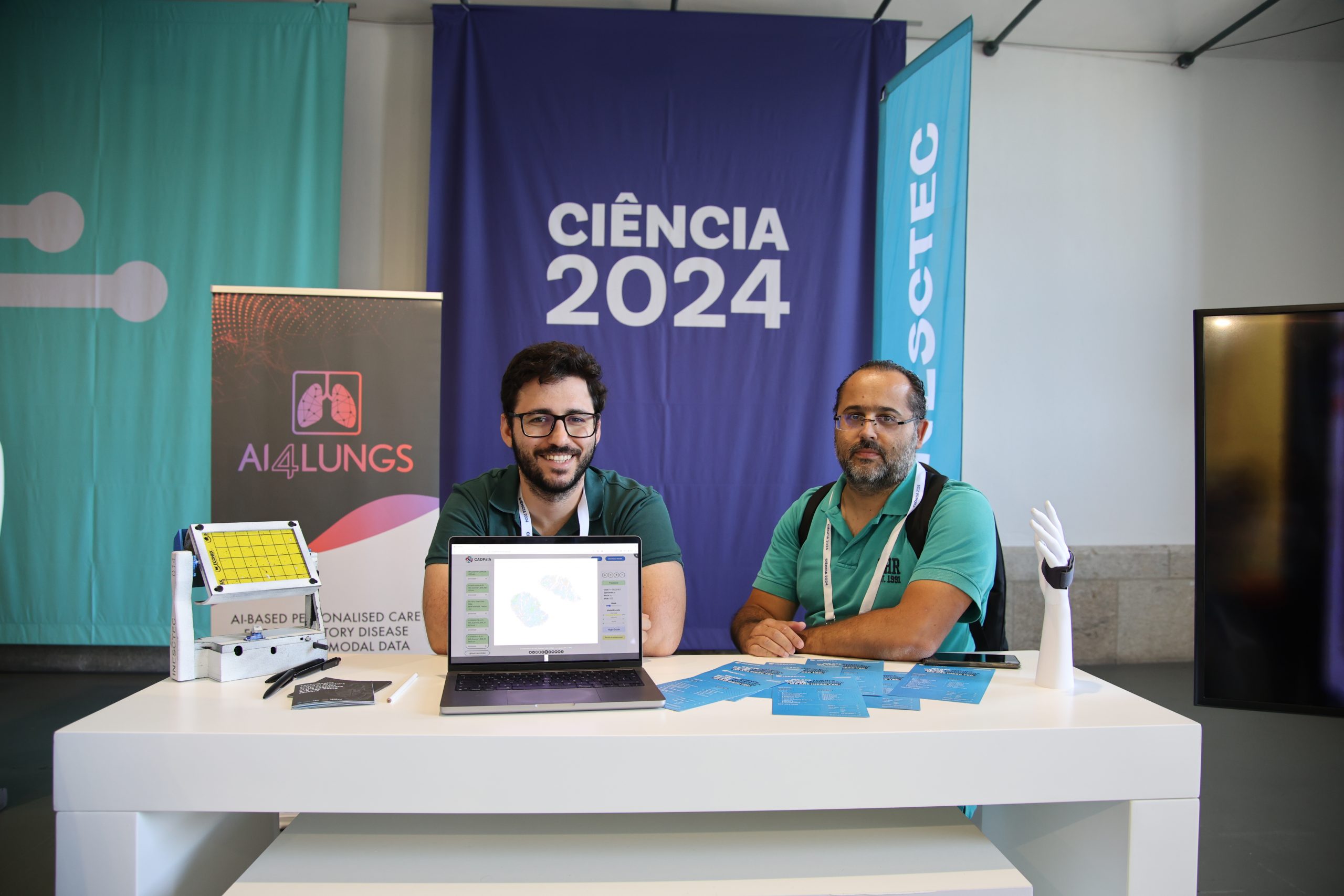
The acknowledgements
The historical founder of INESC, José Tribolet, received the Medal of Scientific Merit awarded by the Ministry of Education, Science and Innovation. It is important to emphasise that the “Medal of Scientific Merit seeks to reward national or foreign individuals who, due to their high professional and duty-fulfilling qualities, have proved themselves for their valuable and exceptional contribution to the development of science or scientific culture in Portugal”. The medal, presented by Madalena Alves, President of FCT, and Francisco Santos, Vice-President of the same institution, highlighted José Tribolet’s role in the development of science and research in Portugal – from the beginning of the 1980s to the present day –, with a decisive contribution to the birth of the INESC ecosystem.
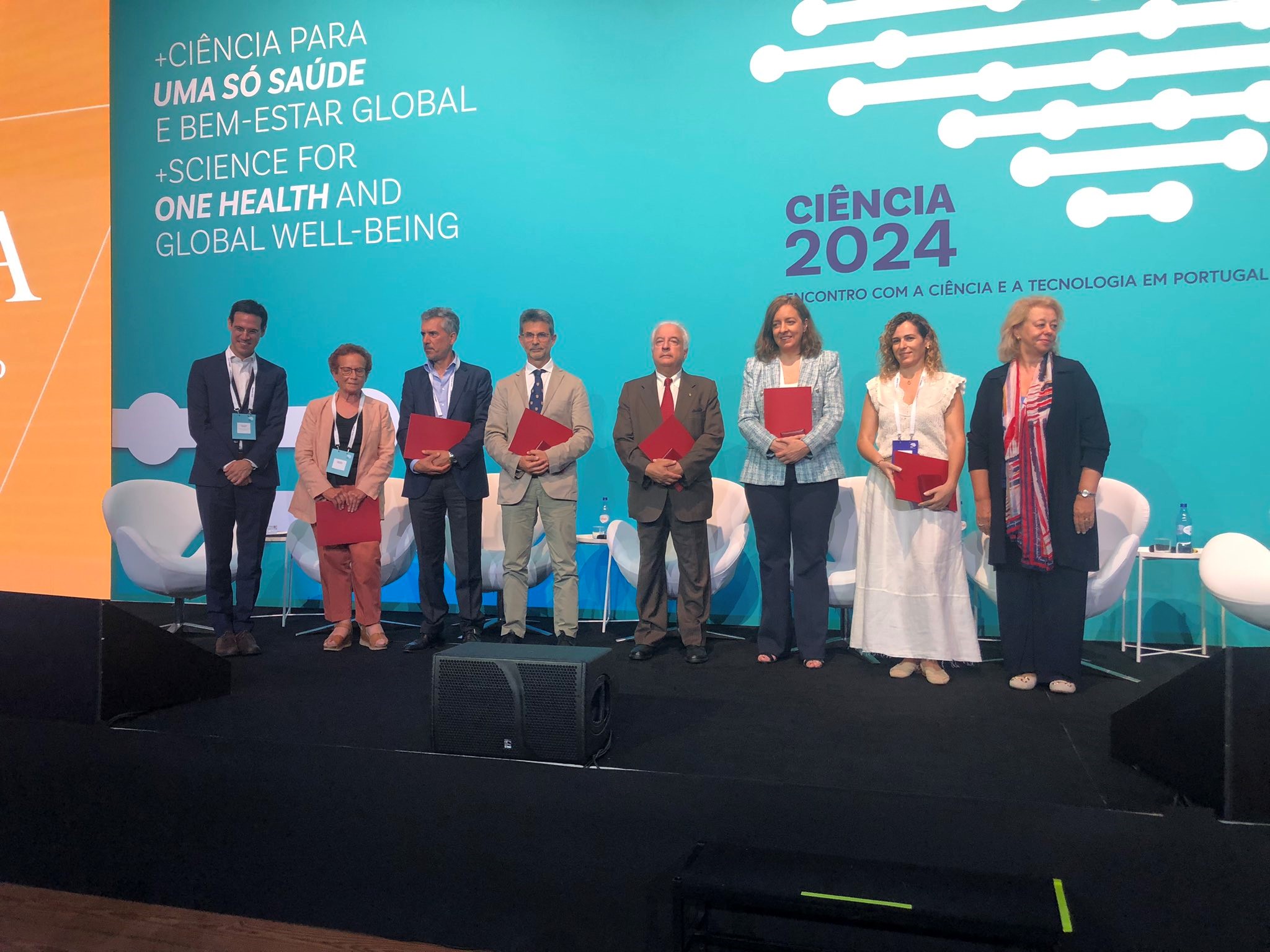
Ricardo Campos, researcher at INESC TEC, received an honourable mention, together with his student Rodrigo Dias da Silva, during the presentation of the “Arquivo.pt Award”. The researcher received this honourable mention from the DNS.PT Association, for his work on recovering the story of the centennial newspaper Notícias da Covilhã. The work entitled “AquivoNC – web archive from the Jornal de Notícias da Covilhã” promoted the use of Arquivo.pt as research and learning tool in the context of the final project of the degree in Computer Engineering at the University of Beira Interior.
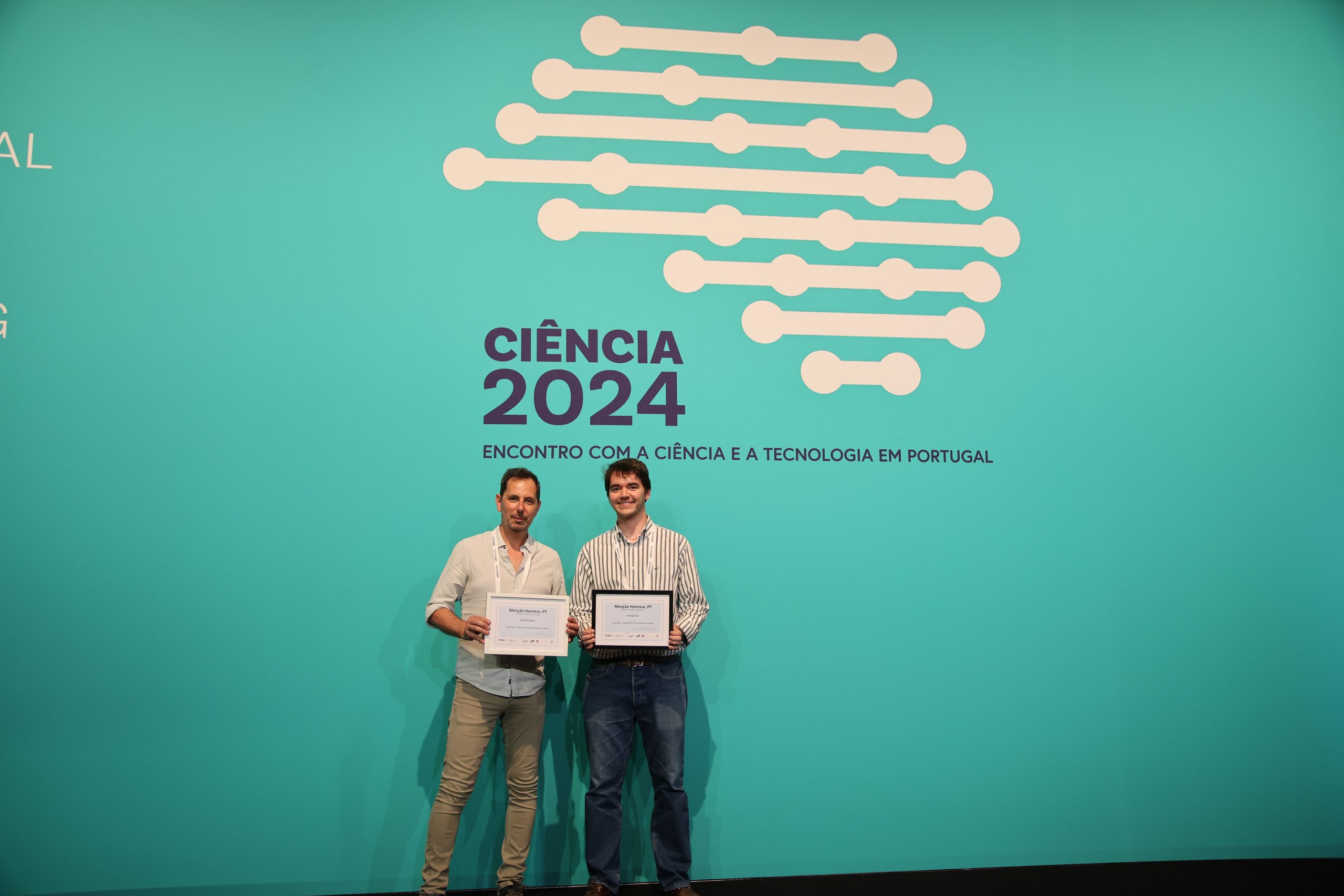
The researchers mentioned in this news piece are associated with INESC TEC, UP-FEUP, UP-FCUP and UBI.

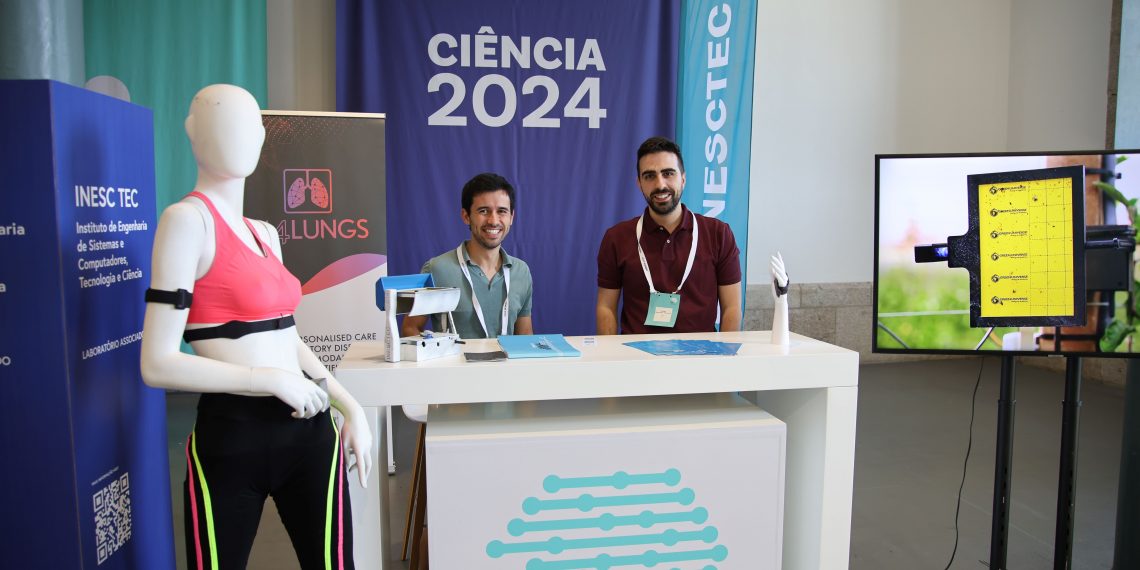
 News, current topics, curiosities and so much more about INESC TEC and its community!
News, current topics, curiosities and so much more about INESC TEC and its community!